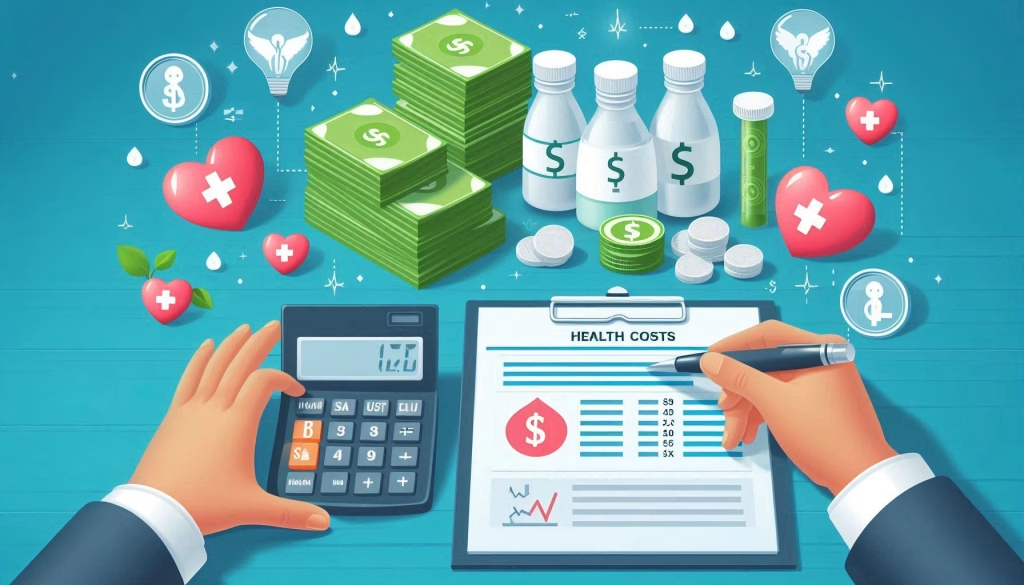Table of Contents
Overview
It is evident that the prices of nearly all goods and services frequently used by the public tend to rise annually. This is largely due to the persistent effects of inflation over time. Health care costs are not exempt from this trend, as they continue to escalate, becoming more expensive with each passing year.
Indeed, existing data indicates that the rate of increase in hospital rates or the health sector in recent years has consistently outpaced the rise in general product prices. Consequently, without finding a solution soon, it is conceivable that financial resources may become insufficient to cover these expenses when necessary.
The question then arises: why do healthcare costs continue to rise each year? Moreover, how can one navigate these escalating costs without overburdening one’s financial situation? To address this question,
The escalating healthcare costs, widely felt by the general public, are not mere exaggerations. The Minister of Health has also voiced concerns about the rising hospital rates, which are expected to persist and pose challenges for both the community and the nation.
Insights Into Escalating Healthcare Expenditures

The rising costs of healthcare, often felt by the general public, are not mere exaggerations. The Minister of Health has also voiced concerns about the escalating hospital rates, which are expected to continue and pose challenges for both the community and the nation.
According to the data presented, the average rise in global health costs, has consistently outpaced the country’s economic growth over the last two decades.
This aligns with data from the private sector indicating that medical costs have risen by 10 to 11 percent annually over the past three years. Moreover, according to the most recent survey, the increase in medical costs was projected to reach 12 percent in 2021.
According to data, the health cost inflation rate in 2020 stood at 2.79 percent, a figure significantly higher than the general inflation rate of 1.68 percent. This increase was notably disproportionate to the economic growth, which saw a decline of 2.07 percent in the same year.
Five Factors Contributing to the Escalation of Healthcare Costs

When considering data from multiple sources, it is evident that health costs are rising and the impact is increasingly felt by the community. Regarding the factors that drive inflation in the health sector according to economic theory, they are not solely based on medical or hospital costs. Here are five reasons why health costs continue to escalate annually.
Escalation of Healthcare Costs No.1
InsuranceWhat.com
Increased Demand
When the demand for health facilities surges, it inevitably leads to an increase in service prices. For instance, during the height of the Coronavirus spread in the recent pandemic, the cost of many medical necessities saw a substantial price hike.
The sudden surge in demand has unsurprisingly led to a shortage in the stock of various medical supplies. Consequently, prices have sharply increased across the board. Typically, as demand declines, the prices for these medical items are expected to decrease and stabilize.
Escalation of Healthcare Costs No.2
InsuranceWhat.com
Production Costs Increase
Another factor contributing to the rising cost of medical care is the escalation in production costs for both products and services, which directly leads to higher service fees or product selling prices.
For instance, if there’s a rise in the salaries of medical staff, or an uptick in spending for hospital facility maintenance, it inevitably leads to an adjustment in healthcare costs that will be passed on to patients. Without these adjustments, hospitals would struggle to sustain their service operations over the long haul.
Escalation of Healthcare Costs No.3
InsuranceWhat.com
The Number of Health Facilities is Not Proportionate to The Needs
Additionally, inflation in medical costs may arise from health facilities and services that do not match the volume of demand. The insufficient capacity to store resources often leads to an inevitable increase in tariffs, in line with general economic principles.
Escalation of Healthcare Costs No.4
InsuranceWhat.com
Uncertainty in Costs Attributable to Various Factors
Another factor is the escalation of selling prices and healthcare services amidst uncertainty. This often occurs during an economic crisis, which enables service providers to engage in speculative pricing, raising the cost of services or fees. Their primary objective is to mitigate the risk of financial loss.
Escalation of Healthcare Costs No.5
InsuranceWhat.com
Motives for Making Profit
Ultimately, the annual increase in healthcare costs can be attributed to hospitals’ profit-seeking motives. However, this rise in expenses is also influenced by several other factors, including the adoption of new technologies and the effects of the pandemic or specific events in the medical field.

The Conclusion
Addressing the Relentless Rise in Healthcare Costs with Effective Strategies
The continual rise in medical expenses each year is indeed a matter beyond the general public’s control. The best approach to navigate this is by ensuring your finances are prepared to handle such increases. Hence, it’s crucial to address the relentless escalation of healthcare costs using the tips and strategies outlined previously.
Do you think you have other ideas about Managing Health Costs: Tips and Strategies for Success? You can comment and share your thoughts below, or discuss more in the InsuranceWhat Forum. Also, read more articles about GLOBAL INSURANCE or other interesting insurance topic articles only at InsuranceWhat.com.






